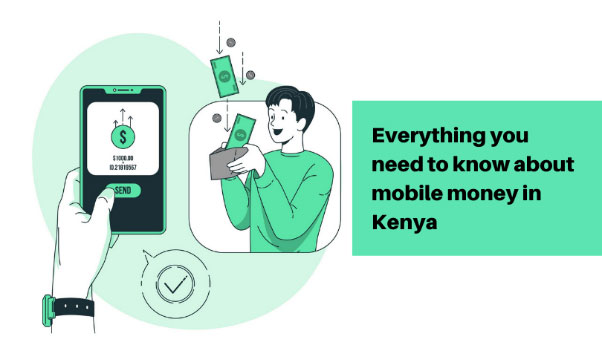Everything you need to know about Mobile Money in Kenya
Updated On : June 2021
What is Mobile Money Banking?
Mobile money banking means that you don’t have to visit a bank for cash. You just have to use your phone, text a password and request money. In some time, an agent from the bank will arrive at your location with the case. This type of banking is required because, in rural villages in Kenya, the bank’s branches are not present in every village.
How Mobile Money works?
No bank account is required. To make a deposit or to get the cash they use agents, they are given cash and have the mobile money application installed. The agents function like ATM, the person can go to the agents and give them cash to get money deposited in your mobile money account or transfer money out of your account to get cash.
In the early 2000s in Kenya, mobile banking in the country has in many ways surpassed the payment systems that are used in the US. As per the research, the fast spread of mobile money payments systems has led to significant economic growth. In many parts of Africa, mobile money systems are ubiquitous, in Kenya, it is 72 per cent mobile money account and in Uganda, 43 per cent of people have mobile money account.
The current state of Kenyan Mobile Money Market:
- There are four Mobile money providers in Kenya are Safaricom M-Pesa, Airtel Money, Orange Money, Essar yuCash. But the mobile money market is dominated in Kenya by Safaricom’s M-Pesa.
- In just four years when the mobile money was launched, the country with only 1072 branches has seen the number of agent’s outlets providing mobile money services grow to 46,000. The key drivers of this financial inclusion in Kenya is mainly Safaricom’s M-Pesa and Equity Bank. centre on a very supportive regulatory regime, technological advances, and innovative business models particularly in the mobile phone sector. The mobile money market is going to increase.
- The government aims to increase the use of mobile money. They have launched five programs of the ICT board. Local digital content, digital inclusion, government applications, business process outsourcing, IT shared services.
The benefits of Mobile Money are as follows:
- It is faster, easier and cheaper
- Paperwork is reduced
- A convenient option for beneficiaries
- It helps to promote uptake of services
- Becoming an agent is a profitable business
The challenges of Mobile Money are as follows:
- Platform integration
- Remote mobile network coverage
- Ensuring agent liquidity
- Not all recipients have a National ID
- Training for new users
- Obtaining signed receipts
- The recourse of mistake payments
The focus of mobile money is primarily on driving its innovative uses within the program and businesses. The sector is also receiving support from the government. With the introduction of mobile money, Kenya is creating the world’s most successful mobile payments service.


Comments :